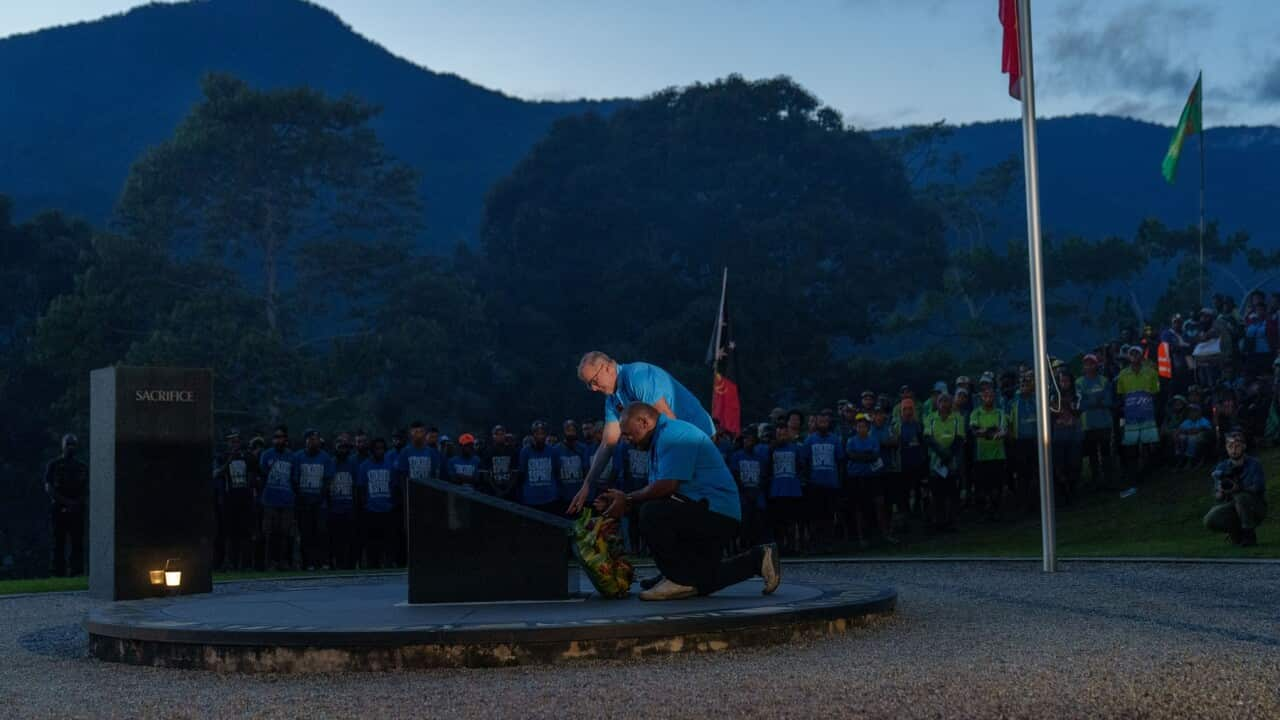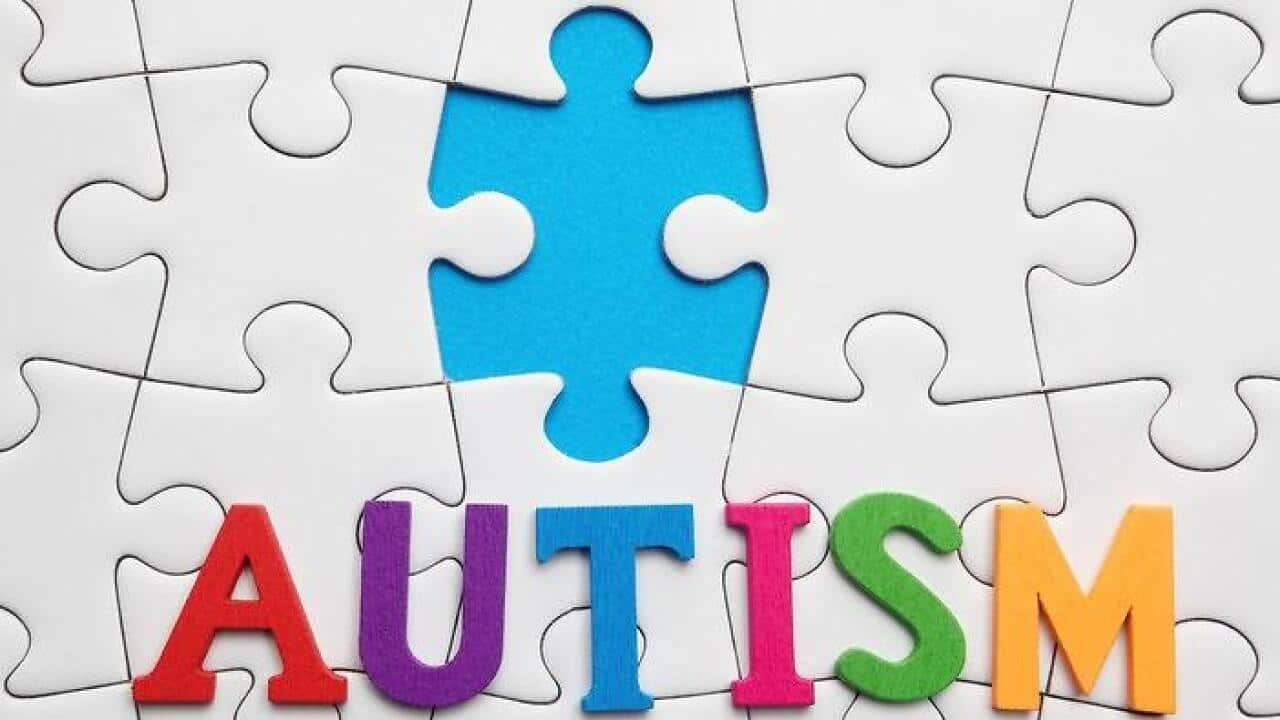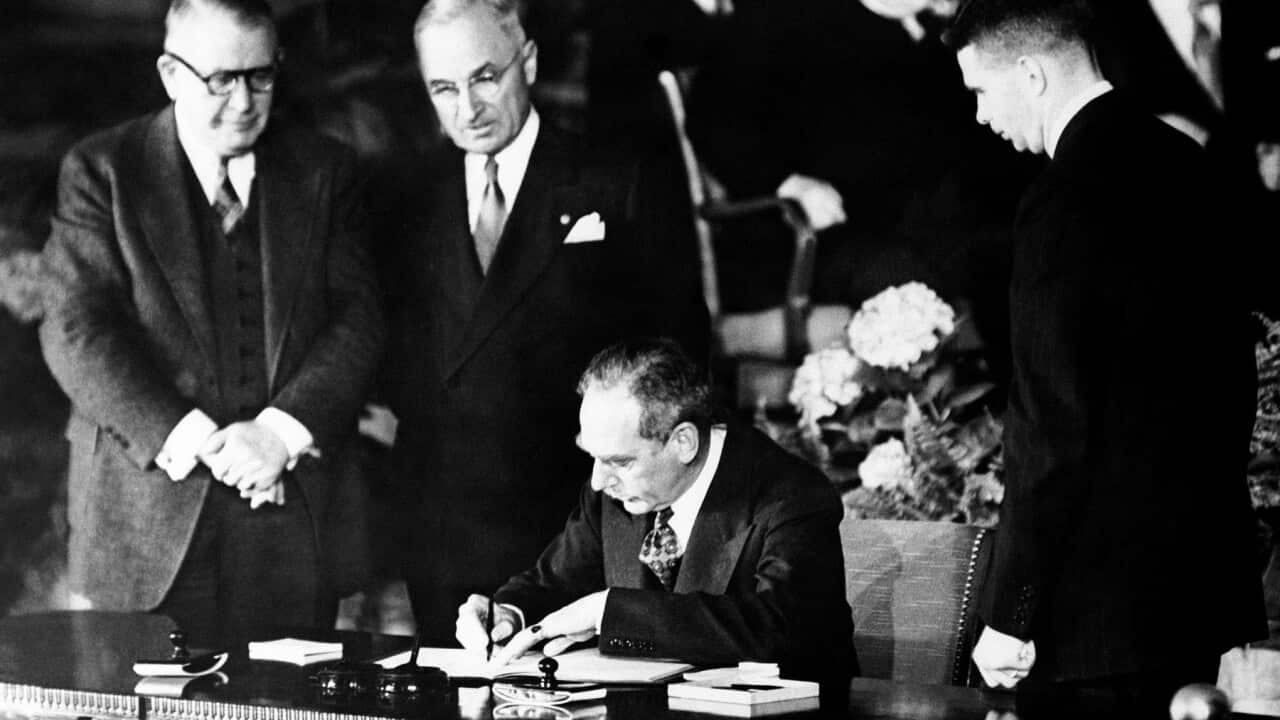Italiano
Questi erano i primi suoni di un esperimento unico e coraggioso per la radio australiana.
Durante gli ultimi mesi del governo laburista di Gough Whitlam, il commissario per le relazioni comunitarie Al Grassby lanci un progetto radiofonico unico nel suo genere, chiamato Radio Ethnic Australia.
Il programma era stato pensato per durare solamente tre mesi e aveva un budget di 38mila dollari.
Con le stazioni 2EA a Sydney e 3EA a Melbourne, il servzio nasceva per spiegare il nuovo schema Medibank ad un crescente numero di migranti in 15 lingue comunitarie.
Il servizio divenne popolare molto in fretta tra le comunità migranti e ben presto la domanda crebbe.
Con l’estensione del servizio, il giornalista Tony Charlton annunciò il raggiungimento di un’altra pietra miliare.
"Ethnic radio has grown to the point where today, 3-E-A in Melbourne broadcasts in 41 languages, with programs prepared and presented by broadcasters whose first language is not English."
I broadcaster volontari avevano i passati più variegati, insegnanti, assistenti sociali, dottori e giornalisti che donavano il loro tempo alle pioneristiche emittenti.
Tra di loro, la giornalista araba Majida Abboud.
"The format of the program was very simple at the time. It was just music and simple information. A lot of people were reading pamphlets from Social Security and stuff like that … but even that was important, because there was nothing available at the time. And it wasn't until about a year later that we started doing news and current affairs."
Questo fu il seme da cui sbocciò lo Special Broadcasting Service, che oggi trasmette in oltre 60 lingue.
SBS venne istituita formalmente tre anni dopo dall’ex primo ministro Malcom Fraser come servizio radiofonico volontario per i migranti.
Nonostante la loro conoscenza dell’inglese, le comunità migranti avrebbero apprezzato l’opportunità di ascoltare le notizie nella propria lingua nativa.
Charlton ha dichiarato che il servizio era un punto d’incontro raro per chi viveva in una nazione lontana da quella in cui erano nati.
"This is of course is particularly common among the older generation, for whom these sounds of home are a continuous source of joy and satisfaction."
SI trattava di un periodo di grandi cambiamenti.
La White Australia Policy era stata smantellata appena due anni prima e c'era un bisogno crescente di inclusione sociale.
La risposta però non fu del tutto positiva.
Commentatori di altre stazioni radiofoniche più affermate salutarono le nuove stazioni con sospetto e derisione.
Le critiche non impensierirono Peter Krope, esperto giornalista che lavorò alla SBS per 18 anni.
Iniziò a andare in onda in sloveno nel 1975, pochi mesi dopo l’inizio del servizio.
Krope ha dichiarato di non aver incontrato troppe difficoltà, come uno dei primi broadcaster.
"It was something new. Never happened before, and as such did become a subject of debate and scrutiny from some mainstream media, public and opposition. Why Australia need a station such as S-B-S, funded by taxpayers? However, it would soon become evident the program in many different languages was commanding a strong support, not only by the new migrants who came and called Australia home, but also by the majority of mainstream society in general."
Il numero delle lingue crebbe progressivamente e, durante Australia Day del 1994, SBS lanciò il suo tanto atteso network nazionale.
Il network portò Radio SBS alla comunità degli ascoltatori fino al 90% del continente.
Lo scopo di SBS, come definito nella sua carta costitutiva, è quello di ispirare tutti gli australiani ad esplorare, apprezzare e celebrare il nostro mondo variegato, e così facendo contribuire ad una società unita.
English
[[MONTAGE]]
These were the early sounds of a unique and bold experiment for Australian radio.
During the final months of Gough Whitlam's Labor government, Commissioner for Community Relations Al Grassby launched a unique broadcasting project called Radio Ethnic Australia.
The program planned to operate for only three months and had a budget of 38-thousand dollars.
With stations 2-E-A in Sydney and 3-E-A in Melbourne, the service was set up to explain the new Medibank scheme to a growing number of migrants in 15 community languages.
The service quickly became popular with the migrant community, and demand grew.
As the service expanded, journalist Tony Charlton announced a new milestone:
"Ethnic radio has grown to the point where today, 3-E-A in Melbourne broadcasts in 41 languages, with programs prepared and presented by broadcasters whose first language is not English."
The volunteer broadcasters came from all walks of life -- schoolteachers, social workers, doctors and journalists all giving their time to the pioneering stations.
Among them, former Arabic broadcaster Majida Abboud.
"The format of the program was very simple at the time. It was just music and simple information. A lot of people were reading pamphlets from Social Security and stuff like that … but even that was important, because there was nothing available at the time. And it wasn't until about a year later that we started doing news and current affairs."
It was the seed that led to the Special Broadcasting Service, which today broadcasts in more than 60 languages.
S-B-S was formally established three years later by former Prime Minister Malcolm Fraser as a volunteer radio service for migrants.
Despite their knowledge of English, migrant communities would relish the opportunity to hear news in their native tongue.
Mr Charlton says the service was a rare point of connection for those living in a nation far from their homeland.
"This is of course is particularly common among the older generation, for whom these sounds of home are a continuous source of joy and satisfaction."
It was a time of great change.
The White Australia Policy had only been officially dismantled two years prior and there was a growing need for social inclusion.
However, the response wasn't all so positive.
Commentators from other established radio stations greeted the new broadcasts with suspicion and derision.
The criticism did not deter Peter Krope, a veteran broadcaster who worked for S-B-S for 18 years.
He began broadcasting in Slovenian in 1975, a few months after the service was established.
Mr Krope says he did not encounter much difficulty as one of the first broadcasters.
"It was something new. Never happened before, and as such did become a subject of debate and scrutiny from some mainstream media, public and opposition. Why Australia need a station such as S-B-S, funded by taxpayers? However, it would soon become evident the program in many different languages was commanding a strong support, not only by the new migrants who came and called Australia home, but also by the majority of mainstream society in general."
The number of languages grew steadily, and, on Australia Day 1994, SBS launched its long-awaited national network.
It brought SBS Radio to a listening community across up to 90 per cent of the continent.
SBS' purpose, as defined in its charter, is to inspire all Australians to explore, appreciate and celebrate our diverse world, and by doing so contribute to a cohesive society.
Report by Darren Mara, Tania Smrdel and Jennifer Luu







